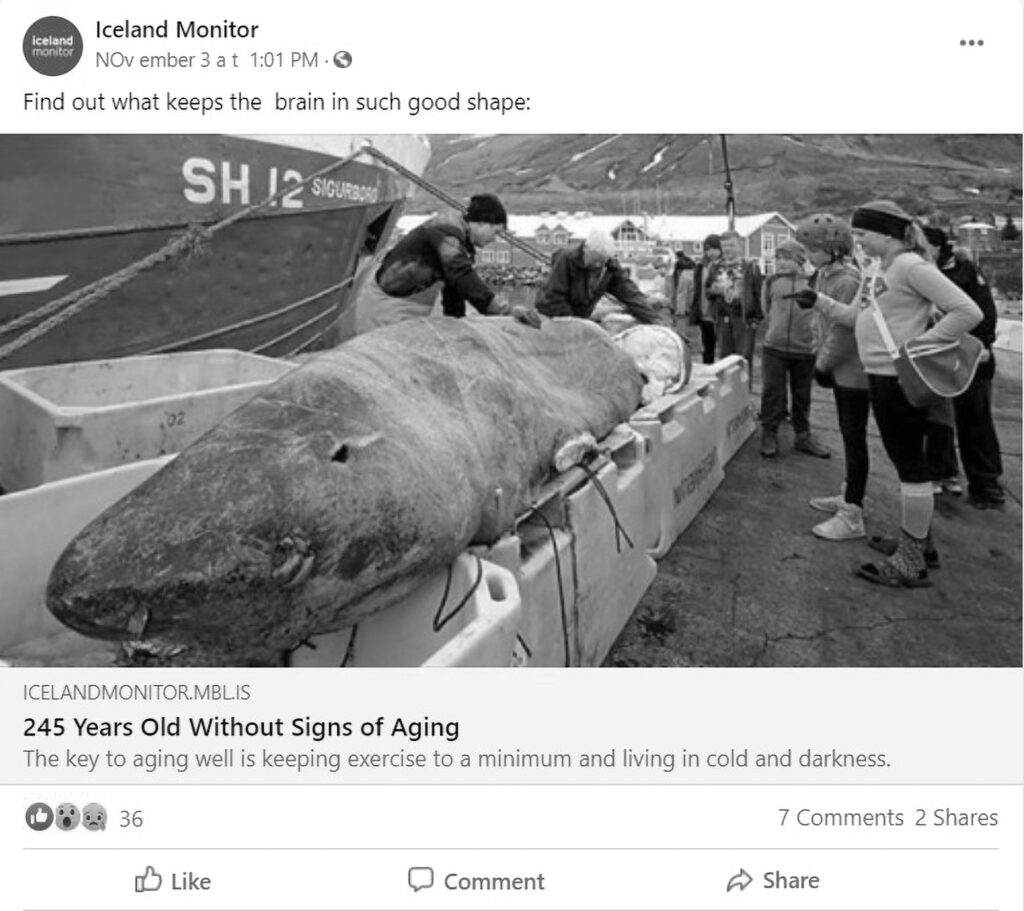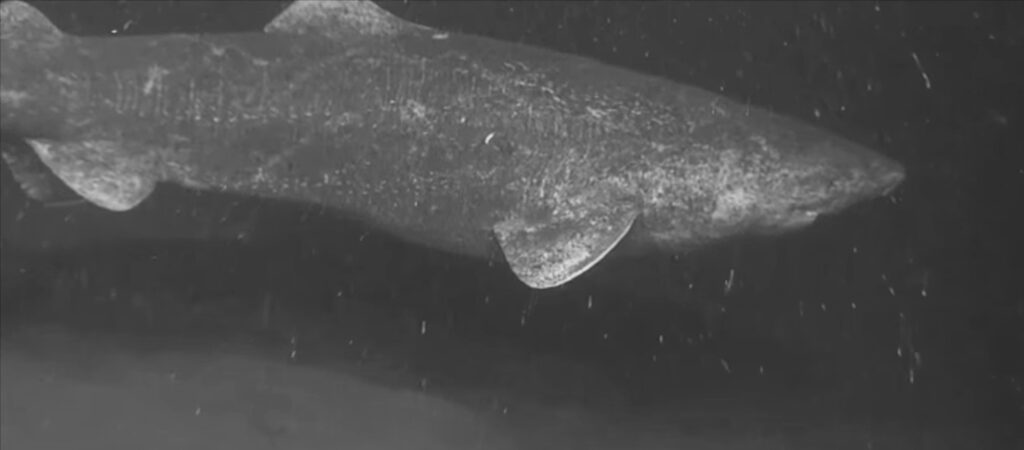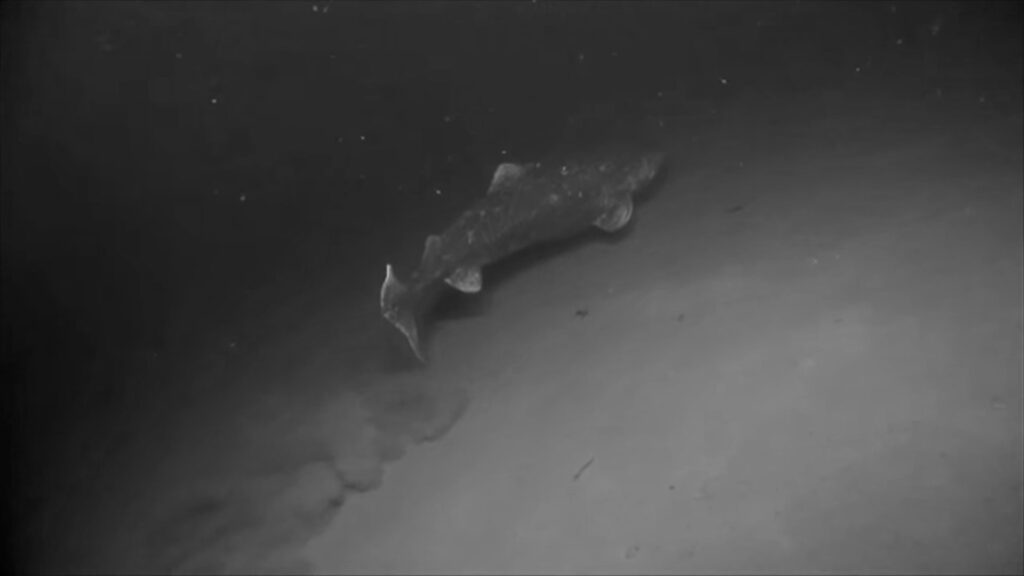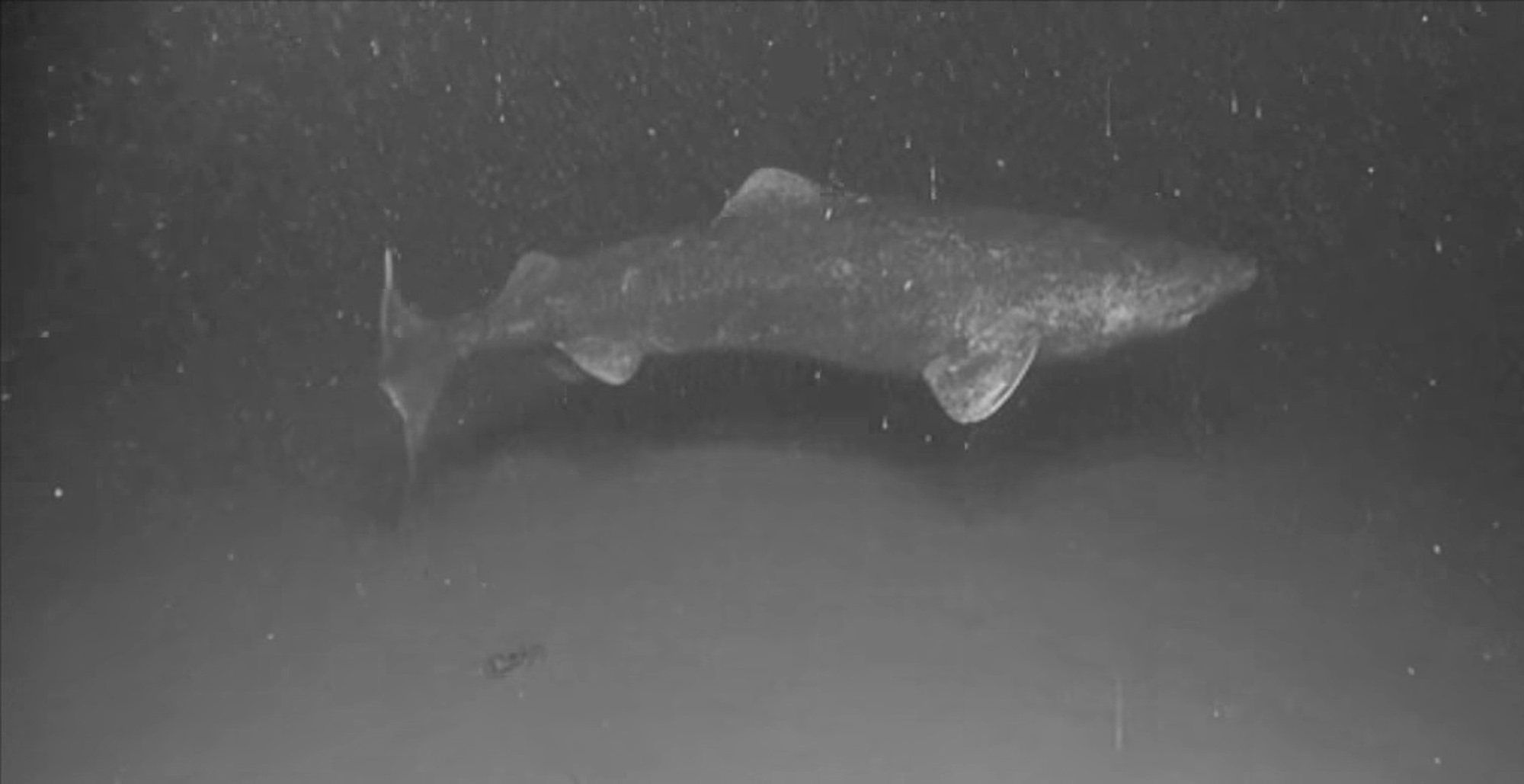Scientists have discovered that it could be possible to delay ageing in the brains of humans for centuries after studying the ‘ageless’ brain of a shark estimated to be almost 300 years old.
To gain the insight, scientists studied the brain of the captured Greenland shark (Somniosus microcephalus). They are vertebrates known for their extreme longevity, which can be anything between 300 and 500 years, according to the paper they published in the peer-reviewed Acta Neuropathologica.
They said that the hermit-like existence of the sharks made them the perfect candidates for a study on ageing as they were not only the longest-living vertebrates but also because they lived a “relatively isolated hermit-like lifestyle preserving their CNS from desperate environmental stress factors”.
The Red List of the International Union for Conservation of Nature (IUCN) lists the Greenland shark as ‘near threatened’. but the scientists obtained a specimen during the annual autumn trawl carried out by the Icelandic Marine and Freshwater Institute.
They estimated the age of the species, which was captured at a depth of 722m, to be around 245 with the possibility that it could be as old as 280.

The announcement of the discovery 
245 years old shark without signs of aging
The team, including Klara B. Jakobsdottir of the Institute for Marine and Freshwater Research, discovered that age-related changes in humans, including protein depositions, were not found in the Greenland shark’s central nervous system (CNS).
They wrote: “Importantly, virtually all age-related changes commonly found in elderly human brains, such as protein depositions, vascular or parenchymal calcifications were completely absent in the Greenland shark CNS.
Scientists were also unable to find signs of neuro-degeneration in the shark, suggesting their brains can be morphologically preserved for long periods of time.
However, they added that this could be attributed to the Greenland shark’s cold environment and slow movement, offering mechanisms that might help to understand how human brains can function normally for longer.
They wrote: “We speculate that this finding might be caused by the specific environmental factors of this animal. Greenland sharks are reported to live predominantly in 4 C cold waters in the Arctic deep sea with remarkably slow movements, with potential low aerobic metabolism and little mitochondrial oxidative stress as well as high concentrations of for example trimethylamine that might be neuroprotective.
“It is further suggested that Greenland sharks feature a relatively low blood pressure compared to other sharks that might reduce the risk of hypertension-related CNS damage such as stroke or cognitive decline.”

An illustrative image of a Greenland shark 
An illustrative image of a Greenland shark
Researchers concluded that the evidence shows some vertebrates can preserve their central nervous system for centuries, opening the door to further analysis on how environmental factors influence their ageing.
They added: “In summary, our study suggests that the CNS integrity can be preserved in vertebrates for centuries, while the precise impact of intrinsic and environmental factors for the process of brain ageing will need to be determined in future studies.”
The sluggish Greenland sharks predominantly live in chilly Arctic waters of around 4 degrees Celsius.
To find out more about the author, editor or agency that supplied this story – please click below.
Story By: Lee Bullen, Sub-Editor: Marija Stojkoska, Agency: Newsflash
The Ananova page is created by and dedicated to professional, independent freelance journalists. It is a place for us to showcase our work. When our news is sold to our media partners, we will include the link here.




